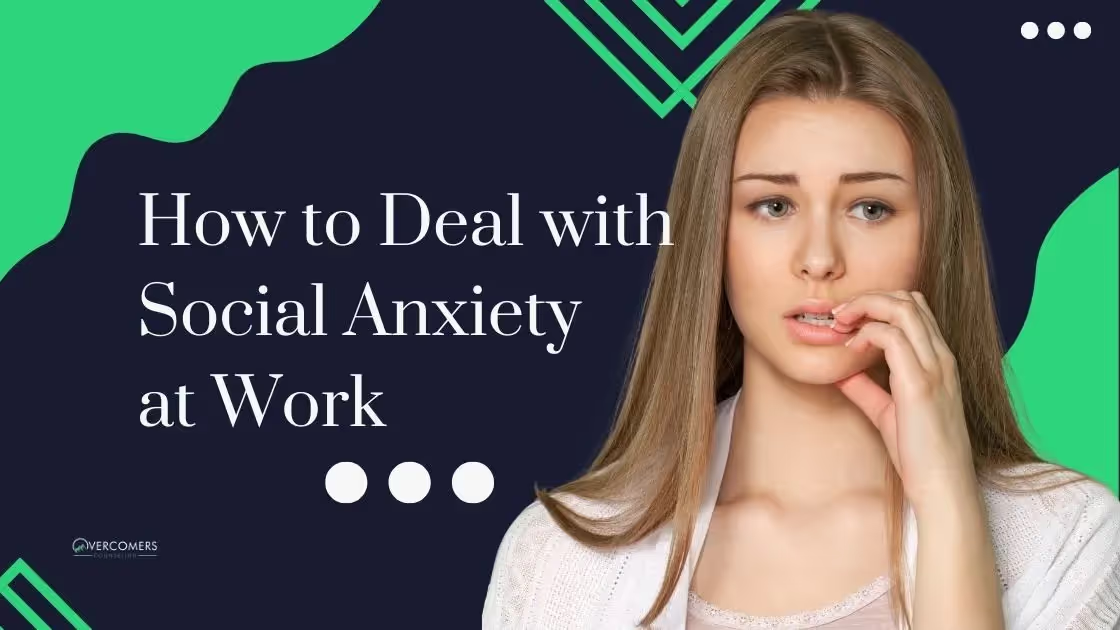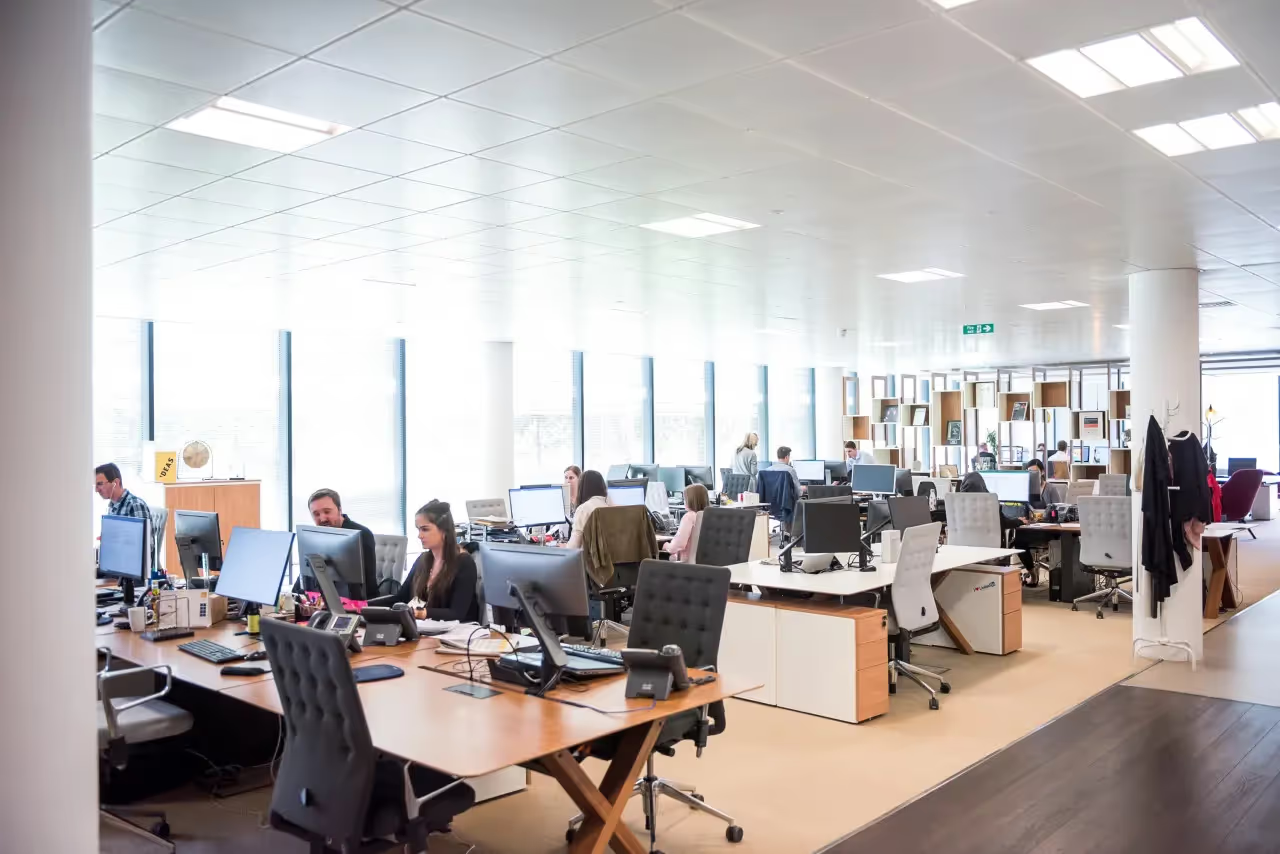I know firsthand how challenging workplace social anxiety can be, as I often find myself feeling anxious during social interactions at the office.The...

I know firsthand how challenging workplace social anxiety can be, as I often find myself feeling anxious during social interactions at the office.
The constant self-consciousness and intense fear of performance situations can make even the simplest tasks feel overwhelming.
Like many socially anxious employees, I've experienced the persistent fear and physical symptoms.
These physical sensations can sometimes lead to more anxiety, creating a vicious cycle.
I've learned that acknowledging these feelings is the first step toward managing them.
There are things that you can do to ease your social anxiety and make working life much easier.
Exposure therapy and understanding the roots of my social phobia have been crucial in easing my anxiety disorders.
Here are some tips on how to deal with social anxiety at work.
Tip
Explanation
Example
Practice Mindfulness and Breathing Exercises
Allocate a few minutes each day to calm anxious thoughts and reduce stress.
During a break, focus on your breathing to manage anxiety before a social interaction.
Gradual Exposure to Anxious Situations
Expose yourself to work scenarios that cause anxiety to build confidence over time.
Start by making small talk with a colleague, then progress to speaking up in a meeting.
Set Realistic Goals
Break down tasks into smaller steps to avoid feeling overwhelmed.
Focus on completing one task before moving to the next to boost work performance.
Utilize a Support Network
Reach out to colleagues or mentors for support and encouragement.
Discuss your anxious thoughts with a trusted coworker to gain new perspectives.
Create a Structured Routine
Develop a daily routine to provide a sense of control and reduce anxiety.
Plan your day around key tasks, including time for lunch and relaxation to prevent avoidance of stressful interactions.
Engage in Physical Activity
Incorporate regular exercise into your routine to reduce stress and improve mood.
Take a short walk during lunch to reduce anxiety and improve readiness for social skills practice.
Seek Professional Help if Needed
Consider therapy or counseling to manage anxiety effectively.
If public speaking causes intense fear, a therapist can provide strategies to manage such situations.

If you find yourself feeling anxious during a conversation, try to focus on your breathing.
Take deep, slow breaths in through your nose and out through your mouth. This will help to calm you down and ease your anxiety.
You may also find it helpful to close your eyes for a few seconds and imagine yourself in a relaxing place.
Deep breathing exercises can help to ease your anxiety and make difficult conversations more manageable.
There are often support groups available for people with social anxiety.
These groups can provide a safe space for you to talk about your anxiety and how it affects you.
You may also find it helpful to talk to someone outside of work, such as a therapist or counselor.
Talking to others who understand what you're going through can be a great way to find support and feel less alone.

One of the best ways to feel more confident at work is to choose tasks that play to your strengths.
Doing work that you're good at can help to boost your confidence and make you feel more comfortable in the workplace.
Taking some time off from work or school may seem like the last thing you want to do when you're feeling anxious, but it can actually be helpful in managing your symptoms.
When you're feeling overwhelmed, your body is under constant stress, which can lead to physical health problems like headaches, difficulty sleeping, and a weakened immune system.
Taking a break from your usual routine can give your body and mind a chance to relax and rejuvenate. It can also give you time to focus on healthy coping mechanisms, such as exercise, relaxation techniques, and talking to a therapist.
If you're feeling anxious, consider taking some time off to care for yourself.
If you're struggling to cope with your social anxiety, it's important to talk to someone about it. Talking to a therapist or counselor can be extremely helpful, and they can give you some tools to deal with your anxiety.
If you follow these tips, you should be able to ease your social anxiety and make working life much easier.
This is not medical advice, and if you are feeling extremely anxious or have any other mental health concerns, please seek professional help.
Get tips, tricks, and advice on how to manage your anxiety and other mental health needs.
Working with social anxiety can be difficult, but there are ways to make it easier.
Talking to your boss about your anxiety, practicing deep breathing exercises, and finding a support group can all be helpful.
If your anxiety is starting to interfere with your work life in a major way, seek professional help.
Following these tips can help you to ease your social anxiety and make working life much easier.
If you have any questions or would like to share your own experiences with social anxiety, please do so in the comments below.
https://www.webmd.com/anxiety-panic/features/workplace-anxiety
https://www.verywellmind.com/social-anxiety-disorder-life-3024297
Addressing anxiety is crucial because it can significantly impact your quality of life and overall well-being. Left untreated, anxiety can lead to more severe mental health issues, relationship problems, and difficulty functioning in daily life.
Yes, Medicaid provides insurance coverage for therapy services specifically designed to help individuals struggling with anxiety, depression, and other mental health conditions.
It's important that you feel comfortable discussing personal matters with your therapist in order to open up and get more out of therapy sessions; therefore finding someone who meets certain criteria like experience level, expertise areas, and personality is key when selecting a therapist who can give meaningful feedback about how best handle issues related to anxiety or other mental health concerns.
To reduce your anxiety, you can practice relaxation techniques such as deep breathing, progressive muscle relaxation, guided imagery, and mindfulness practices. Additionally, regular exercise has been found to be beneficial in managing stress and improving mental health.
Ignoring anxiety can exacerbate symptoms and make it more challenging to manage over time. This can result in a negative impact on your personal, professional, and social life, leading to feelings of isolation and even depression.
The duration of anxiety counseling varies for each individual, depending on the severity of their anxiety and their progress in therapy. Our therapists will regularly assess your progress and adjust your treatment plan as needed.